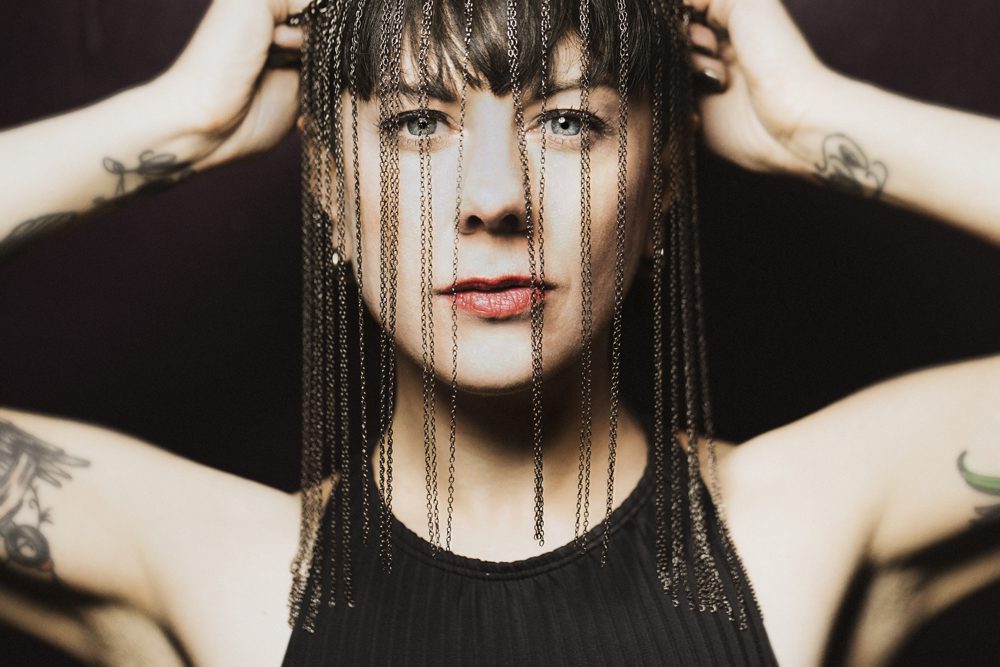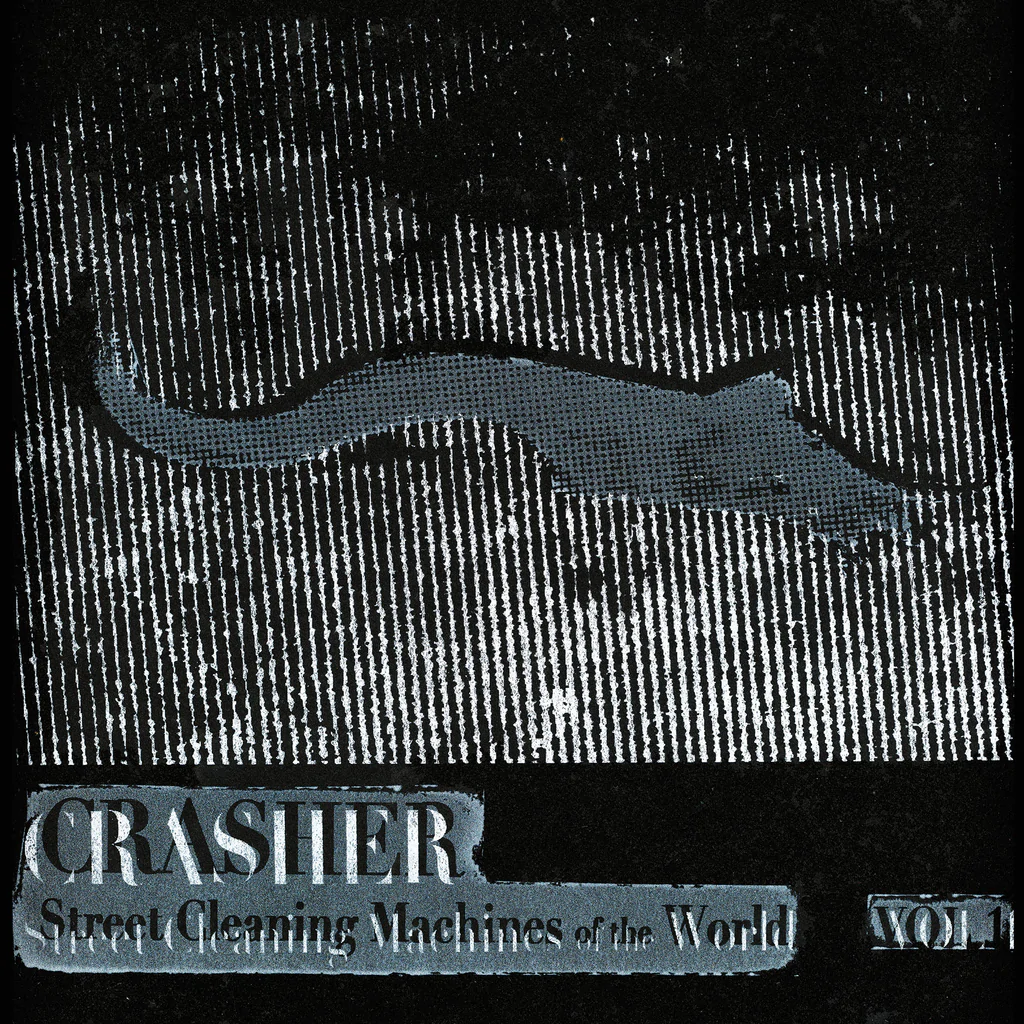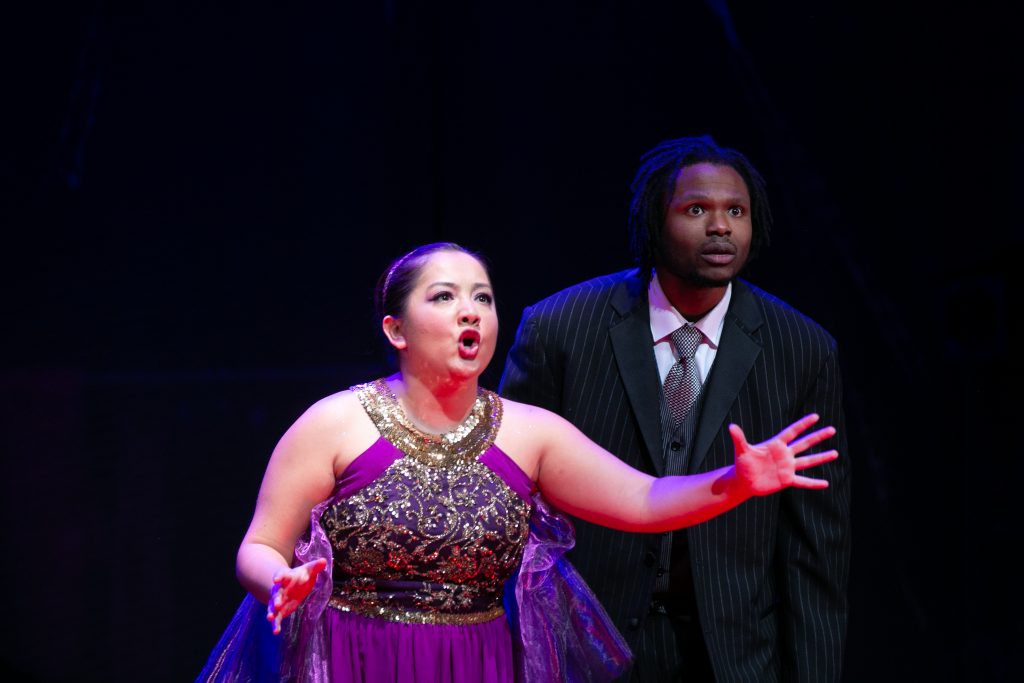Conceived by American saxophonist Steve Lehman and composer Frédéric Maurin, artistic director of the Orchestre National de Jazz, in close collaboration with the Institut de recherche et coordination acoustique/musique (IRCAM) in Paris, the “Ex Machina” project “explores new musical directions” by developing a game of real-time interactions between the soloists and a form of artificial intelligence in the context of a large jazz ensemble.
Resulting from a collaboration with the Musical Representations team of Ircam directed by Gérard Assayag, the Ex Machina project integrates devices created from the DYCI2 environment by Jérôme Nikapour in the composition process and in the soloists’ improvisations in real time. Thus, the computer and its software become in turn “a generator of electronic orchestrations for the composers and an improvisation partner for the musicians”.
A most singular project, its presentation at Off Jazz, this Friday at the Théâtre Plaza, deserves our full attention. This justifies this conversation with its conceptors !
PAN M 360: What “machine” are we talking about here?
STEVE LEHMAN : In this context, the “machine” refers to the DYCI2 Software but also all of the other tools we often use as part of our compositional process: ableton live, max/msp, spear, open music, etc.
PAN M 360: What is the DYC12 environment?
STEVE LEHMAN : DYCI2 (not DYC12) is a computer-driven musical environment capable of responding intelligently to live and pre-recorded audio signals from acoustic instruments and other sources.
PAN M 360: Then, is artificial intelligence involved ?
STEVE LEHMAN : Yes, DYCI2, is meant to demonstrate a kind of (artificially) intelligent musical behavior.
FRÉDÉRIC MAURIN : But it seems to me that the term AI is sometimes overused, at least in the kind of music we make, because it’s still a system that needs human ideas to work.
PAN M 360: How were the triggers designed to generate this dialogue?
STEVE LEHMAN: Triggers are used in this context more for work with pre-recorded audio and synthesizers. The real-time interaction doesn’t involve triggers.
FRÉDÉRIC MAURIN: In this context, triggers are used more for working with pre-recorded audio and synthesizers. Real-time interaction doesn’t involve triggers, other than sending a signal to the DYCI2 system that says “now listen to this instrument”.
PAN M 360: What was the commitment of IRCAM, generally dedicated to contemporary electroacoustic music, in this creative process?
STEVE LEHMAN : Fred and I worked in close collaboration with researcher, Jerome Nikapour, to explore and in some cases expand the capacity of DYCI2 and its integration into our written and improvised music for acoustic instruments.
PAN M 360: How did this collaboration with IRCAM come about?
FRÉDÉRIC MAURIN: On my side, I had been in contact with IRCAM for some time and I had taken several of their courses.
STEVE LEHMAN : When Fred became director of the ONJ, he opened up a dialogue with IRCAM which led to this collaboration and co-commission of the piece “Ex Machina.” Personally, I have also been involved in various projects with IRCAM and a guest researcher and artist-in-residence since 2011.
PAN M 360: What is the part of the collective performance beyond its interaction with DYCI2 ?
STEVE LEHMAN : There is a great deal of notated music for the ensemble. And the formal design of the music is structured in great detail as well.
PAN M 360: How much of this is improvisation? Individual performances?
STEVE LEHMAN : Yes. Individual solos and then individual solos that happen in the context/structure of a given composition.
FRÉDÉRIC MAURIN: There are both individual solos and a duet that form a kind of “cadenza” and individual solos that occur within the context/structure of a given composition with sometimes the whole orchestra playing.
PAN M 360 : Why “39”? Why “Ex Machina”?
STEVE LEHMAN : For “39”, you’ll have to ask Fred. For ‘“Ex Machina”, it’s away to evoke the idea that certain aspects of the music come “from the machine” And maybe also a subtle reference to Gérard Grisey’s “Tempus ex Machina.”
FRÉDÉRIC MAURIN: For “39”, it’s very simple: it was the provisional working title of this piece because it was the 39th piece I was writing for a large ensemble and then in the middle of a rehearsal, a musician from the orchestra said to me “keep this title, because at the moment many people are at 39°C because of the illness”. So I kept it.
PAN M 360: You can see some excerpts of the performance of this work by the NYO on YouTube… Will an album be recorded?
STEVE LEHMAN : Yes, we will record in late-January with a release anticipated in Fall 2023.
PAN M 369: Can you explain how your paths (Steve and Frédéric) crossed and what your common interests were in carrying out this project?
STEVE LEHMAN : Fred and I met in Paris after a concert I presented there with my octet in 2016. We quickly discovered that we had a great deal of musical interests in common, including a deep interest in the French Spectral school of composition (Tristan Murail, Gérard Grisey) and it’s potential integration into improvised music.
PAN M 360: Do you know of any other projects of that kind, i.e., an interaction between contemporary jazz and electronic devices favoring an interaction, or even a work put together in real time?
STEVE LEHMAN : Not so many. But I think George Lewis and his development of the Voyager software for real-time interaction is an important precedent that one should note.
PAN M 360: How was this approach received by audiences?
STEVE LEHMAN : Extremely enthusiastic! We have received standing ovations at all of our first 5 concerts in Paris, Amsterdam, NYC, Washington DC, and Brown University. It’s a good feeling. I think audiences see and hear that the entire ensemble is 100% invested in the music. And I think there is a sense that this project involves a good deal of risk and exploration. And it seems that listeners connect and appreciate that a great deal.
PAN M 360: What will be the instrumentation in Montreal? Is this the line-up?
Steve Lehman – Compositions, alto saxophone
Frédéric Maurin – Compositions, direction
Fanny Ménégoz – Flute, alto flute, piccolo
Catherine Delaunay – Clarinet, basset horn
Steve Lehman – Alto saxophone
Julien Soro – Tenor and soprano saxophones, clarinet
Fabien Debellefontaine – Baritone saxophone, clarinet, flute
Jonathan Finlayson – Trumpet
Fabien Norbert – Trumpet
Daniel Zimmermann – Trombone
Christiane Bopp – Trombone
Fanny Meteier – Tuba
Chris Dingman – Vibraphone
Stéphan Caracci – Marimba, vibraphone, glockenspiel
Enzo Carniel – Piano
Sarah Murcia – Double bass
Rafaël Koerner – Drums
STEVE LEHMAN: Yes, that’s right. You should also include Dionysios Papanikolaou – Live Electronics.
PAN M 360: How do you situate this approach in a context where “serious” jazz has every interest in renewing itself?
STEVE LEHMAN: I’m not sure I understand the question. But as a student of both Jackie McLean and Tristan Murail, I can say that this projects feel very personal to this group but also 100% consistent with the never-ending evolution of the traditions of both jazz and spectral music.
FRÉDÉRIC MAURIN: I believe that jazz is precisely a music that is always reinventing itself since its beginnings. It has never stopped and it continues today ! The problem today comes rather from a part of the critics and from certain places or festivals that believe that this music should be the one that was played 70, 60 or 50 years ago. But it is the history of jazz to evolve. In 1947, some critics and programmers said that bebop was not jazz. History repeats itself.
PAN M 360: Sorry, the wording of this question may be reductive and confusing. The intention was rather to underline that your approach is extremely relevant in a context that is more difficult and less favorable to jazz than it was, which has little to do with its real creativity.
FRÉDÉRIC MAURIN: No problem. Indeed, we agree that times are not very conducive to risk-taking despite the incredible vivacity of artists.
PHOTO CREDIT : SYLVAIN GRIPOIX


